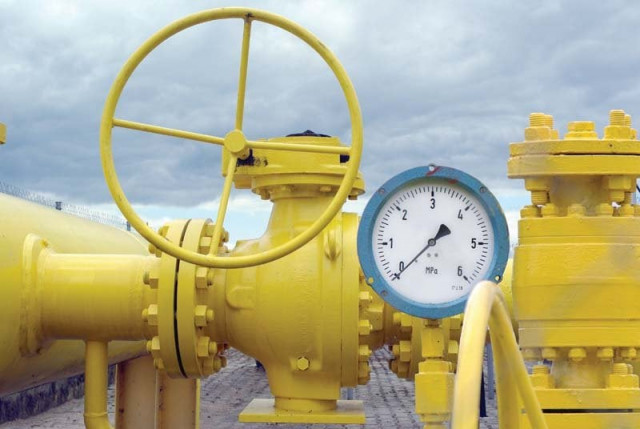Gas utilities: World Bank recommends single transmission firm
It will help reduce line losses, provide relief to consumers

The government has been working on different plans to bail out gas utilities that have suffered due to corruption and involvement of their employees in gas theft. PHOTO: FILE
According to officials familiar with the development, the government is working with the World Bank to bring reforms in the transmission and distribution network of gas utilities - Sui Northern Gas Pipelines Limited (SNGPL) and Sui Southern Gas Company (SSGC).
Sui lease extension: PPL to pay 10% bonus to Balochistan
The primary reason for this is to reduce transmission and distribution losses that have affected earnings of the utilities and to provide relief for the gas consumers that are paying bills regularly.
The transmission and distribution loss caused by gas theft and leakages stood at 11% for SNGPL whereas it was slightly lower for SSGC.
The government has been working on different plans to bail out gas utilities that have suffered from corruption and involvement of their employees in gas theft.
As a result of gas theft, SNGPL is facing higher losses in some areas of Khyber-Pakhtunkhwa and central Punjab while SSGC is incurring higher losses in Balochistan.
According to an official, the World Bank held a high-level meeting on May 17-18, 2016 with Pakistani officials to discuss gas pricing issues as the country had started importing liquefied natural gas (LNG) last year.
Working of new system
The bank proposed that Pakistan should set up a single gas transmission company under the umbrella of the two gas utilities.
Additionally, the bank suggested that the transmission company should be allowed to charge certain fee for gas transmission.
According to officials, the World Bank proposed a two-tier system of gas pricing after including imported gas in the existing transmission and distribution network. In tier-1, local gas flows will be recorded whereas tier-2 will indicate imported gas flows.
The bank ruled out role of the government in determining the price of imported gas, saying SNGPL and SSGC should be allowed to set the price without involvement of the state.
At present, the federal government has authorised the Oil and Gas Regulatory Authority (Ogra) to regulate the imported gas prices. However, the World Bank wants the government to go for deregulation.
OMV pledges $45m investment in Pakistan this year
The bank has asked the government to allow market-based price of imported gas as market forces should be free to determine the rate. It also wants the government to put the burden of imported gas on respective consumers.
Under tier-1, the World Bank wants the government to divert gas to domestic consumers that have been facing load-shedding during winter every year, whereas imported gas should be provided to industry and commercial consumers.
It has also suggested “unbundling” of the distribution network of gas utilities and setting up small distribution companies. The consumers of all distribution companies should face different prices in their respective areas.
Published in The Express Tribune, June 28th, 2016.
Like Business on Facebook, follow @TribuneBiz on Twitter to stay informed and join in the conversation.



















COMMENTS
Comments are moderated and generally will be posted if they are on-topic and not abusive.
For more information, please see our Comments FAQ